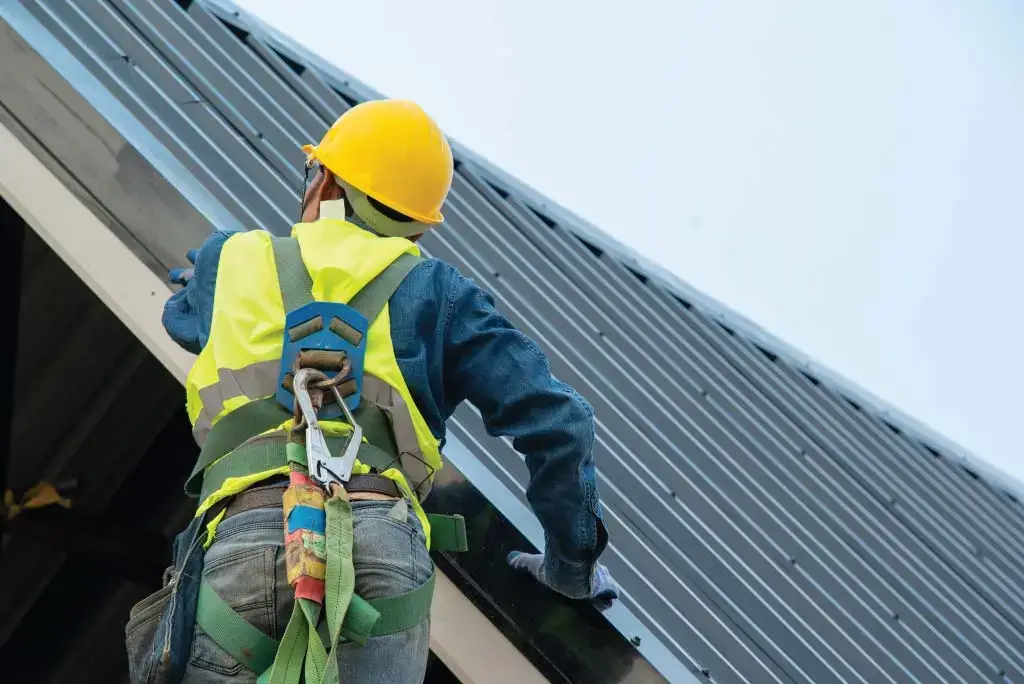Roof insulation in Industries stands as a critical component in modern building design, playing a pivotal role in enhancing energy efficiency, reducing environmental impact, and ensuring operational cost-effectiveness. This article provides a comprehensive overview of the importance, types, benefits, challenges, and future trends of industrial roof insulation.
The Significance
Roof insulation in industrial settings is more than just a building requirement; it’s a strategic investment. Effective insulation contributes significantly to maintaining a stable internal environment, crucial for industries where temperature control is essential for the storage of goods or operational processes.
Types of Roof Insulation in Industries
Various materials are used for roof insulation in Industries, each with unique properties suited to different needs:
Fiberglass: Widely used due to its fire-resistant and soundproofing properties. It’s affordable and effective but requires careful handling due to potential health hazards.
Polyurethane Foam: Offers high insulation value and is lightweight. It’s applied as a spray, creating a seamless layer that is excellent for preventing leaks.
Polystyrene: Available in two types – expanded (EPS) and extruded (XPS). It’s water-resistant and has good thermal insulation properties.
Mineral Wool: Known for its fire-resistant and soundproofing abilities. It’s heavier than other materials but provides excellent thermal insulation.
Cellulose: An eco-friendly option made from recycled paper products. It’s treated for fire resistance and is effective in noise reduction.
Benefits of Proper Roof Insulation
Energy Efficiency: Insulation reduces the need for extensive heating and cooling systems, lowering energy consumption and costs.
Environmental Impact: By reducing energy use, insulation contributes to lower greenhouse gas emissions, aligning with sustainability goals.
Cost Savings: The initial investment in quality insulation pays off in the long term through reduced utility bills.
Temperature Regulation: Insulation maintains consistent internal temperatures, essential for industries sensitive to temperature fluctuations.
Noise Reduction: Many insulation materials offer soundproofing benefits, improving the working environment.
Challenges in Industrial Roof Insulation
Despite its benefits, roof insulation presents challenges
Installation Complexity: Professional installation is crucial, especially for materials that may pose health risks or require specialized equipment.
Maintenance Requirements: Some insulation types may degrade over time or be susceptible to pests, necessitating regular checks and maintenance.
Cost Considerations: High-quality insulation materials and installation can be expensive, though they offer long-term savings.
Latest Trends and Innovations
The field of industrial roof insulation is continually evolving with advancements in materials and technology
Sustainable Materials: There’s a growing focus on using recyclable and eco-friendly insulation materials.
Improved Energy Efficiency: New materials offer higher R-values (a measure of thermal resistance), providing better insulation with less thickness.
Integrated Solar Solutions: Some insulation systems are now designed to integrate with solar panels, further enhancing energy efficiency.
Future of Industrial Roof Insulation
Looking forward, the industry is poised to witness more innovations
Smart Insulation Materials: Materials that adapt to environmental changes, such as temperature-responsive insulations, are on the horizon.
Greener Options: The trend towards sustainability will likely bring more eco-friendly, biodegradable insulation materials.
Regulatory Influence: Stricter environmental regulations will drive the development of more efficient and sustainable insulation solutions.
Conclusion
Industrial roof insulation is a crucial aspect of modern industrial architecture, offering substantial benefits in energy efficiency, environmental sustainability, and operational cost-effectiveness. As the world increasingly focuses on sustainable development, the role of advanced and efficient insulation materials becomes more prominent. Investing in the right insulation not only contributes to a better operational environment but also aligns with global efforts towards energy conservation and environmental protection. As technology advances, we can expect even more innovative and eco-friendly solutions in roof insulation, setting new standards in the construction and industrial sectors.


